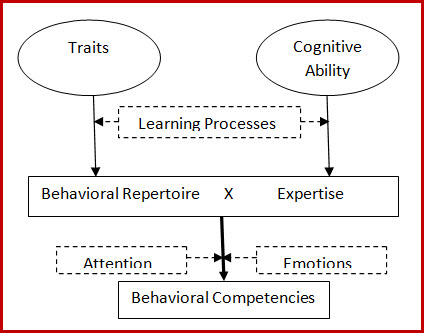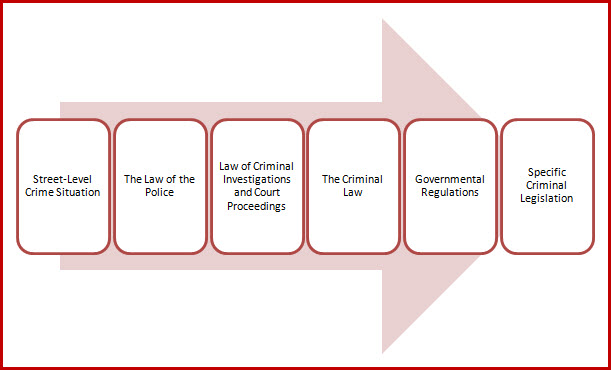My name is Laura Plybon. I am currently the Director of Assessment and Instructional Design for Drury University College of Graduate and Continuing Studies in Springfield, Missouri. In addition to conducting academic assessments for the graduate programs at Drury, I also develop and implement assessment initiatives to improve instructional practices for those adult students who attend classes at our seven campus sites located across southwest Missouri. I also work closely with Tony Bowers, Director of Drury University’s Law Enforcement Academy, on academy assessment initiatives. It has been through this unique partnership that I have seen the value of using evidence-based academic assessment tools in predicting cadet persistence, academic achievement, and academy and career success.
There exists a small — but strong — body of theoretical and applied academic assessment police research. I have found the theoretical perspectives to be refreshingly practical and applicable. Hoekstra and Van Sluijs’ (2003) model (Figure 1) provides an excellent police assessment framework by considering the dual importance of personality and related psychological traits and cognitive ability and skills in influencing behavioral competencies of police cadets and officers.
Figure 1. Model from Hoekstra & Van Sluijs (2003)
One must have communication and critical thinking competencies to succeed in the field of law enforcement. Consider Holgersson, Gottschalk, and Dean’s (2008) model below. Cadets must have solid professional knowledge of the multiple components of the criminal justice system and critical thinking competencies to effectively perform in each domain. Strong reading, writing, and communication skills are furthermore beneficial to the many other aspects of law enforcement, including police interviewing, report writing, and testifying in court.
Hot Tip: Evidence-based academic assessment tools have a place in professional programs, including law enforcement academies. They are useful in retention initiatives and can provide guidance as to what student support interventions are most needed.
Hot Tip: Use academic assessments in coordination with personality assessments for police academy cadets to understand how psychological traits and academic skills of the cadets interact to influence academy behavior.
Hot Tip: Emphasize reading and writing skills across the curriculum as part of the valued-added educational assessment process of professional programs, especially law enforcement academies.
Rad Resources
Chappell, A.T. (2008). Police academy training: comparing across curricula. Policing: An International Journal of Police Strategies & Management, 31(1), 36-56.
De Fruyt, F., Bockstaele, M., Taris, R., & Van Hiel, A. (2006). Police interview competencies: assessment and associated traits. European Journal of Personality, 20, 567-584.
Henson, B., Reuns, B.W., Klahm, C.F., Frank, J. (2010). Do good recruits make good cops? Problems predicting and measuring academy and street-level success. Police Quarterly, 13(1), 5-26.
Holgersson, S., Gottschalk, P., & Dean, G. (2008). Knowledge management in law enforcement: knowledge views for patrolling police officers. International Journal of Police Science and Management, 10(1), 76-88.
Do you have questions, concerns, kudos, or content to extend this aea365 contribution? Please add them in the comments section for this post on the aea365 webpage so that we may enrich our community of practice. Would you like to submit an aea365 Tip? Please send a note of interest to aea365@eval.org. aea365 is sponsored by the American Evaluation Association and provides a Tip-a-Day by and for evaluators.



Hey Laura,
My name is Scott Mark and I am a student at Queen’s University in the Professional Maser of Education Program. I am also a serving police officer and instructor at a local college, for a justice studies program.
Much like you mentioned, I have noticed there is not the same wealth of information on theoretical and applied academic assessment from a police related perspective. As such, I was happy to find your article, and always interested when I find them.
I think one of the main aspects, when it comes to learning and teaching potential or aspiring police officers. I find is important to stress to my students, who are aspiring police officers, is the old idea of what is needed, or what’s the right stuff, is no longer true. It’s now more about mental capabilities and learning abilities, than it is about physical traits or characteristics.
When I read your and saw the Model from Hoekstra & Van Sluijs (2003) graphic. I realized how useful that will be, to describe and demonstrate to my students what I mean as i make this point. With that graphic, I believe it will be easier to illustrate the point about what goes into the behavioural competencies. As well, when I looked at Holgersson, Gottschalk, and Dean’s (2008) model you outlined, I wondered if that model may be improved if it was put into a circular graphic, or an infinity symbol, to demonstrate a less linear model? The model appeared to be a great illustration of the fact that knowledge of multiple components is required, which is great. But I wondered if it was shown how each of those components may have an affect on each other, and interact, may help?
Thank you again for your article, as it was of great interest and sparked some ideas of new ways to teach or help aspiring police understand what it takes. I would be curious to hear your thoughts on the question I posed, as well as any other insights you may have about assessment, instruction, or evaluation of programs in the police environment.
Good evening,
My name is Kaitlyn Osborne and this is my last semester at TAMUCT. My major is Psychology with a minor in Criminal Justice.
I couldn’t help but notice and agree with all of your points regarding police work. In order for someone to make a good officer of the law, not only must their critical thinking skills be exceptional, he or she must also possess good reading, writing, and oral skills like you stated. For an example, if a cop is called to the stand at court, they must not only accurately convey their side of the story, but their report must be free from error. If their report has mistakes, the lawyer will be able to cast shadow of doubt on the officer’s capabilities and make him or her appear to be incapable of doing law work.
I thought your blog post was completely accurate and I could not agree with you more.
Hello, my name is Elisa Chamberlain, a current student at Texas A&M University-Central Texas. currently enrolled in a Program Evaluation course which is how I found the link to your article. It is an assumption that law enforcement academies produce the creme de la creme. When as you discussed, it is the evidence based applied academic research tool that enable potential cadets to achieve the title of being Americas finest. Knowing the justice system and not just being familiar with it are vital in the decision making process in real time. Being able to listen with attention can make that tour of duty a front page headliner if not properly handled. Improving instructional practices seems to me a must, as society is ever evolving. Our justice system is reforming and cadets must effectively and efficiently prove their cognitive abilities to be up to par and technical skills to match. Retention of those who uphold the code is definitely a necessity. Great amount of knowledge in the models above. Thank you.
Good evening; my name is Tiffany Sockwell, and I am a student at Texas A&M University – Central Texas. I am seeking my master’s degree in Human Resources and decided to take an introductory program evaluation course for personal interest. What I find very interesting about program evaluation is its application across all disciplines. The post demonstrates how these assessments can be used to improve training and candidate selection, a requirement in the law enforcement community. Program evaluation is not limited to select fields such as education and psychology.
I recently had a friend who became a member of the law enforcement community, and the assessment process as mentioned above helped determine who was best suited for law enforcement. On the opposite side of the spectrum, when assessments are not used properly, mistakes may occur. In this example, hiring applicants unsuited for police work may lead to dire consequences for the affected department.
My goal is to broaden my scope and apply what I learn about program evaluation to my desired career field. The post was very informative.